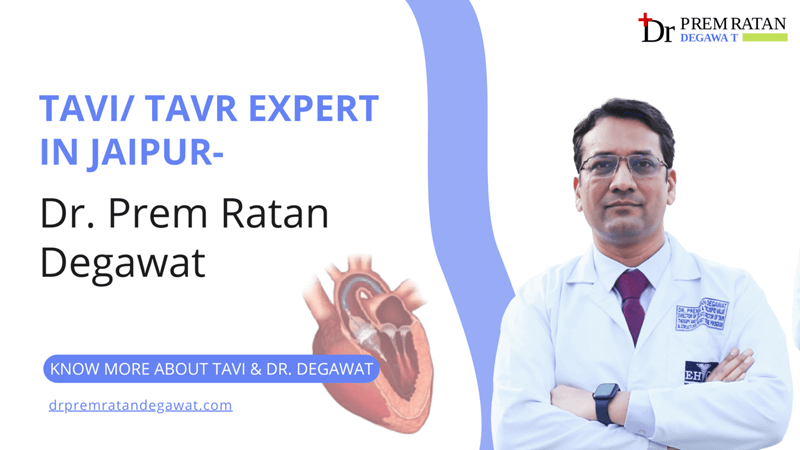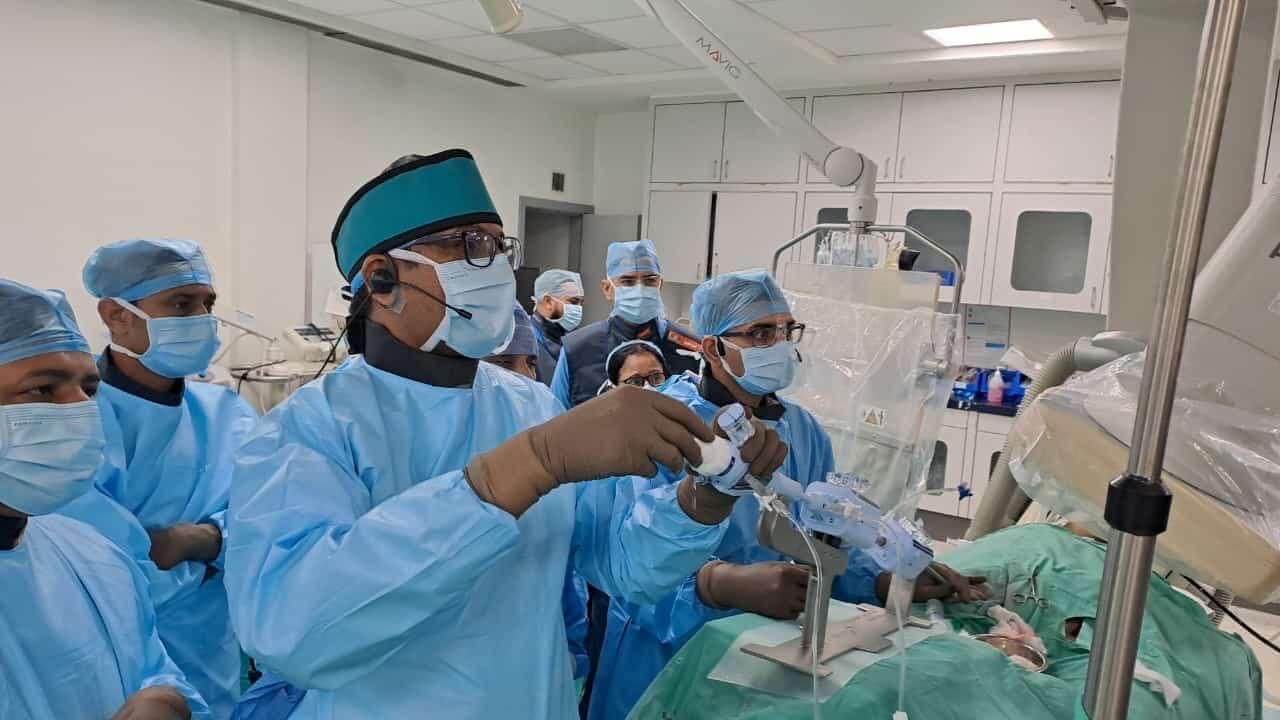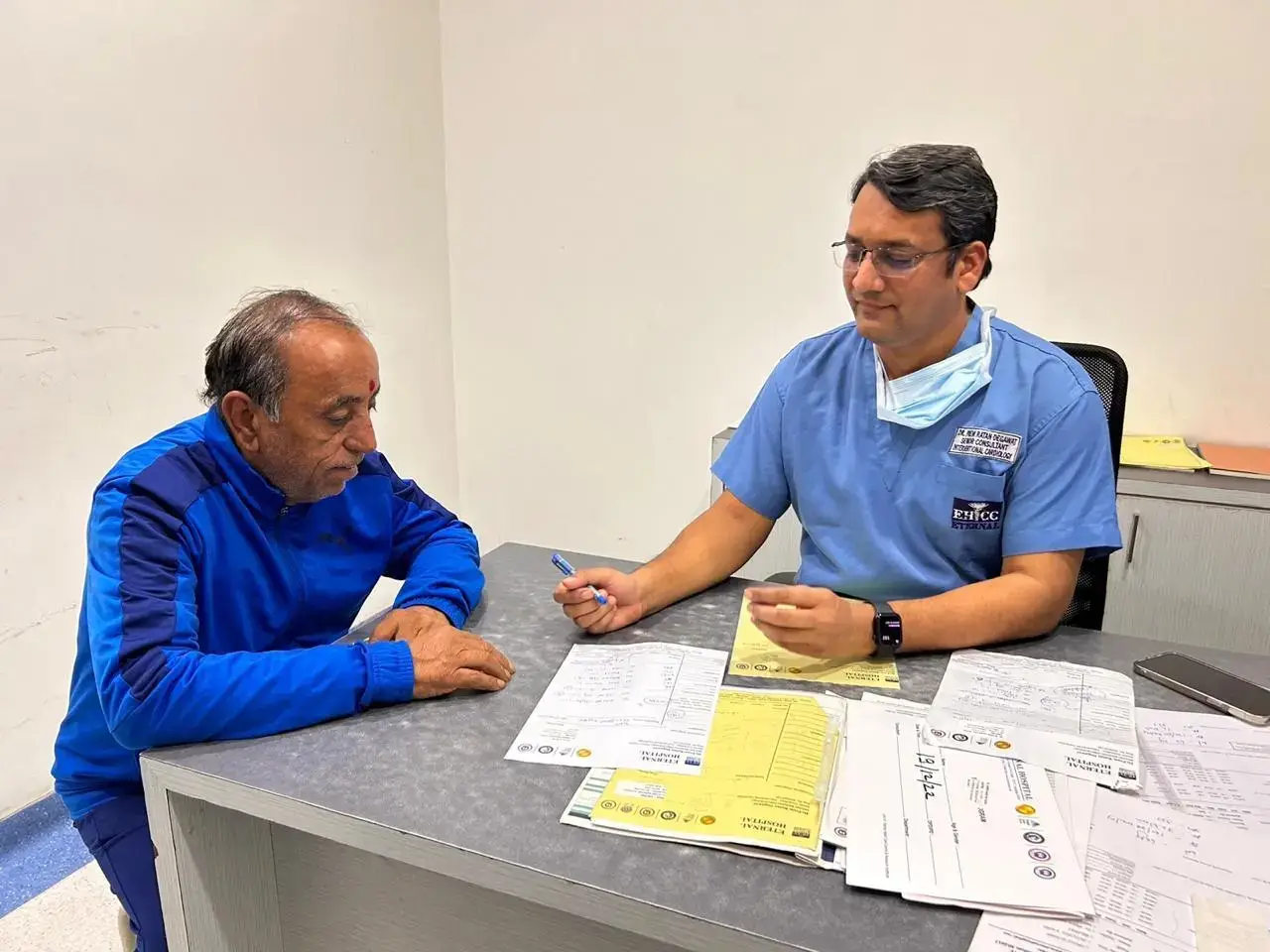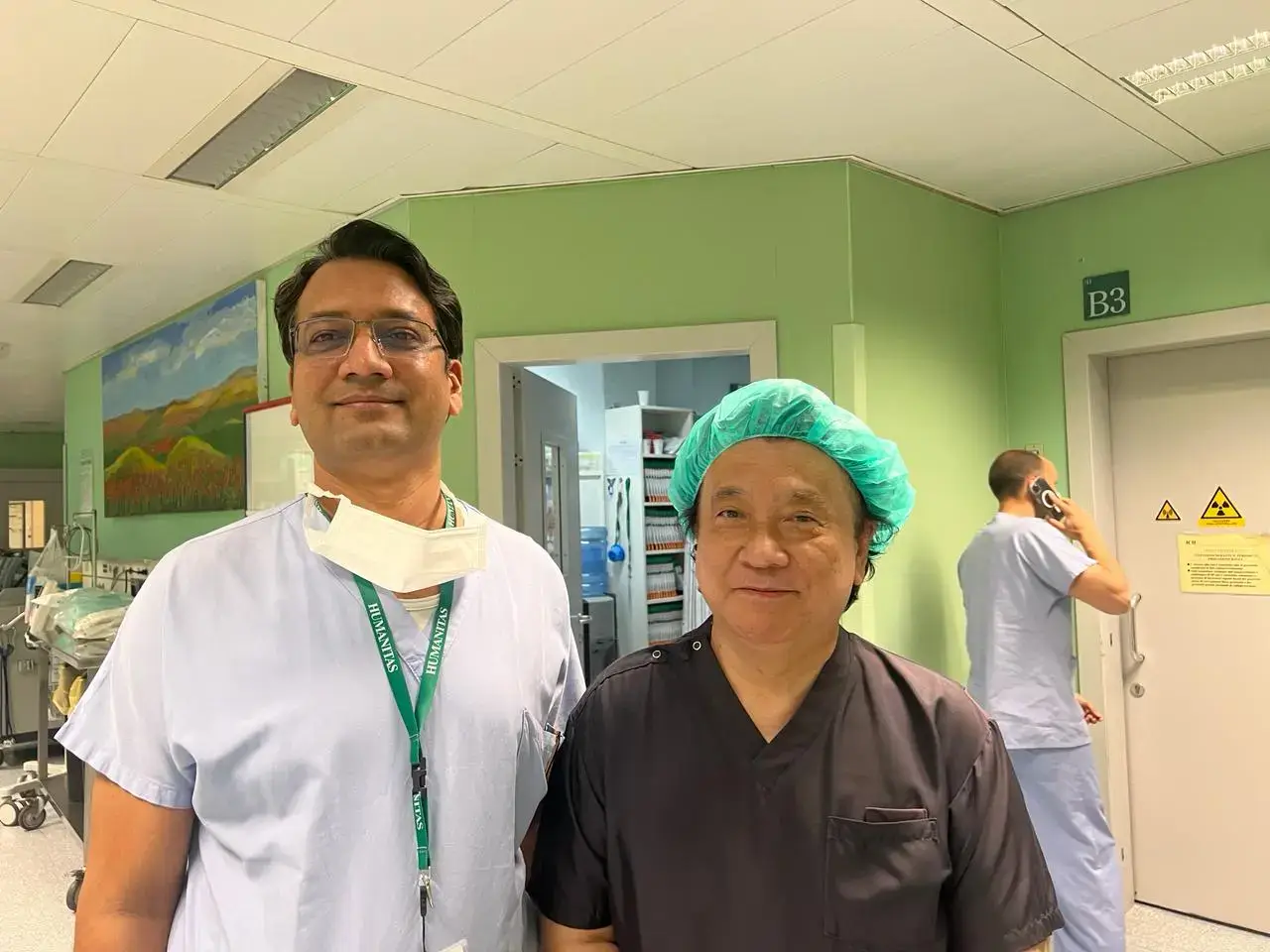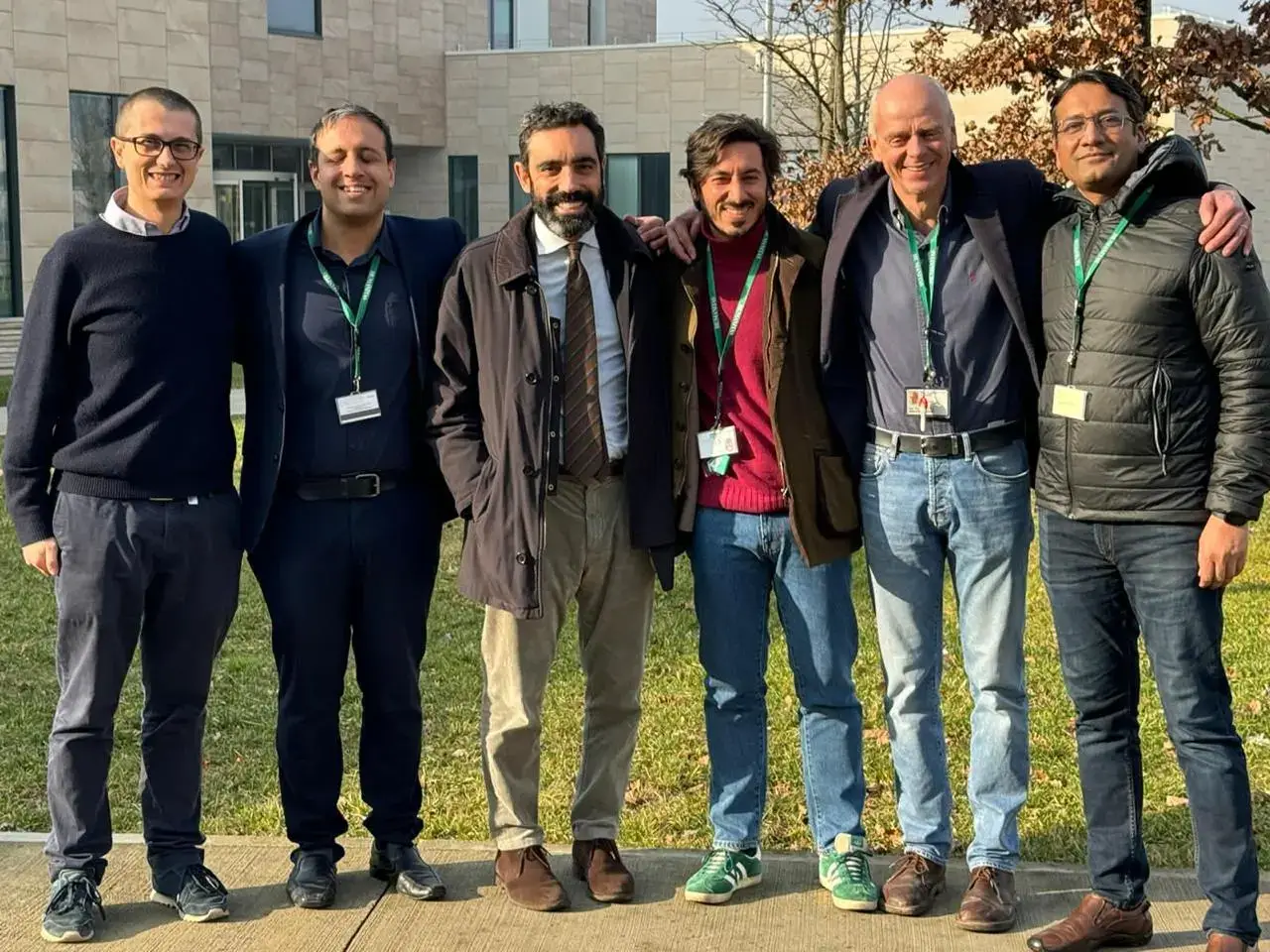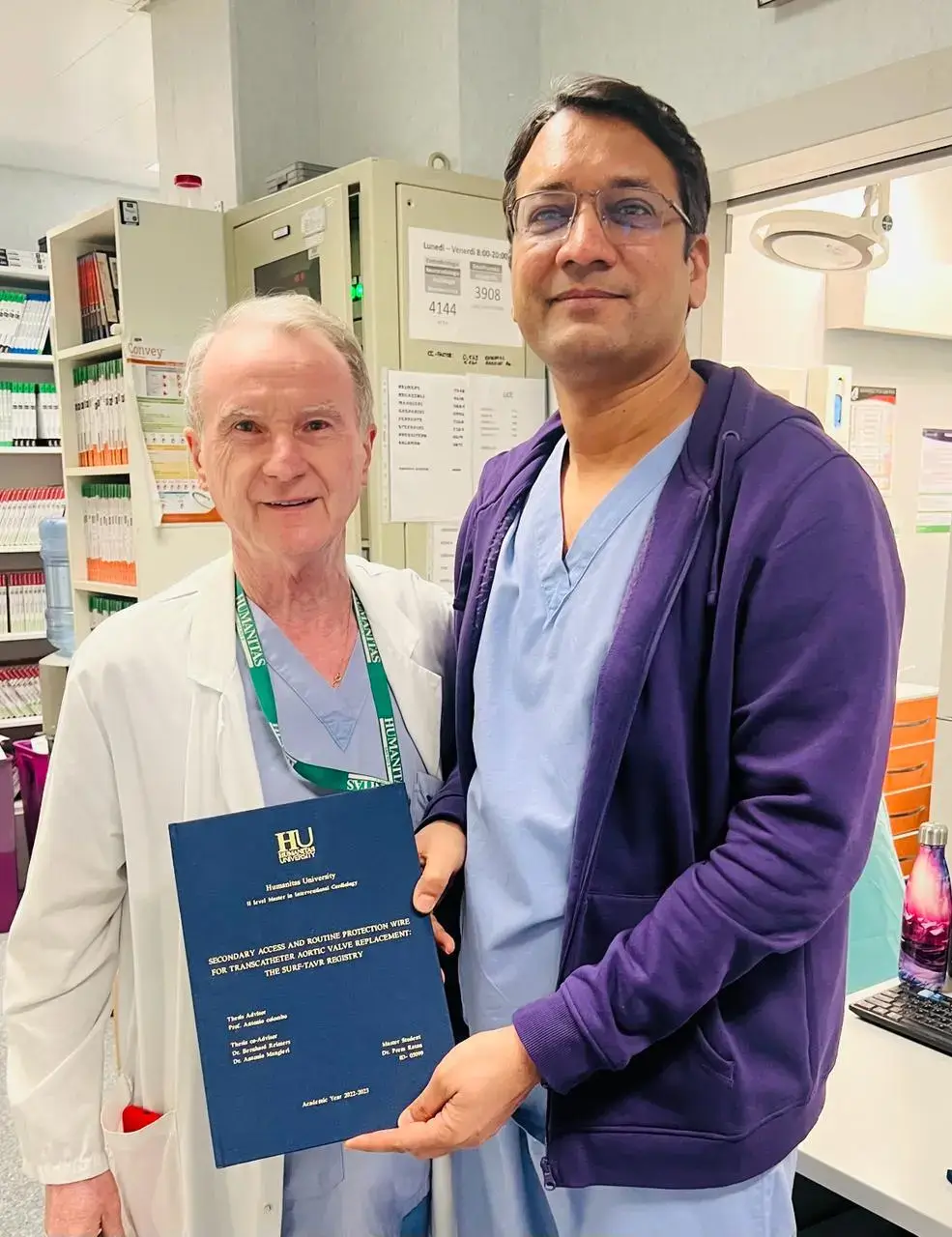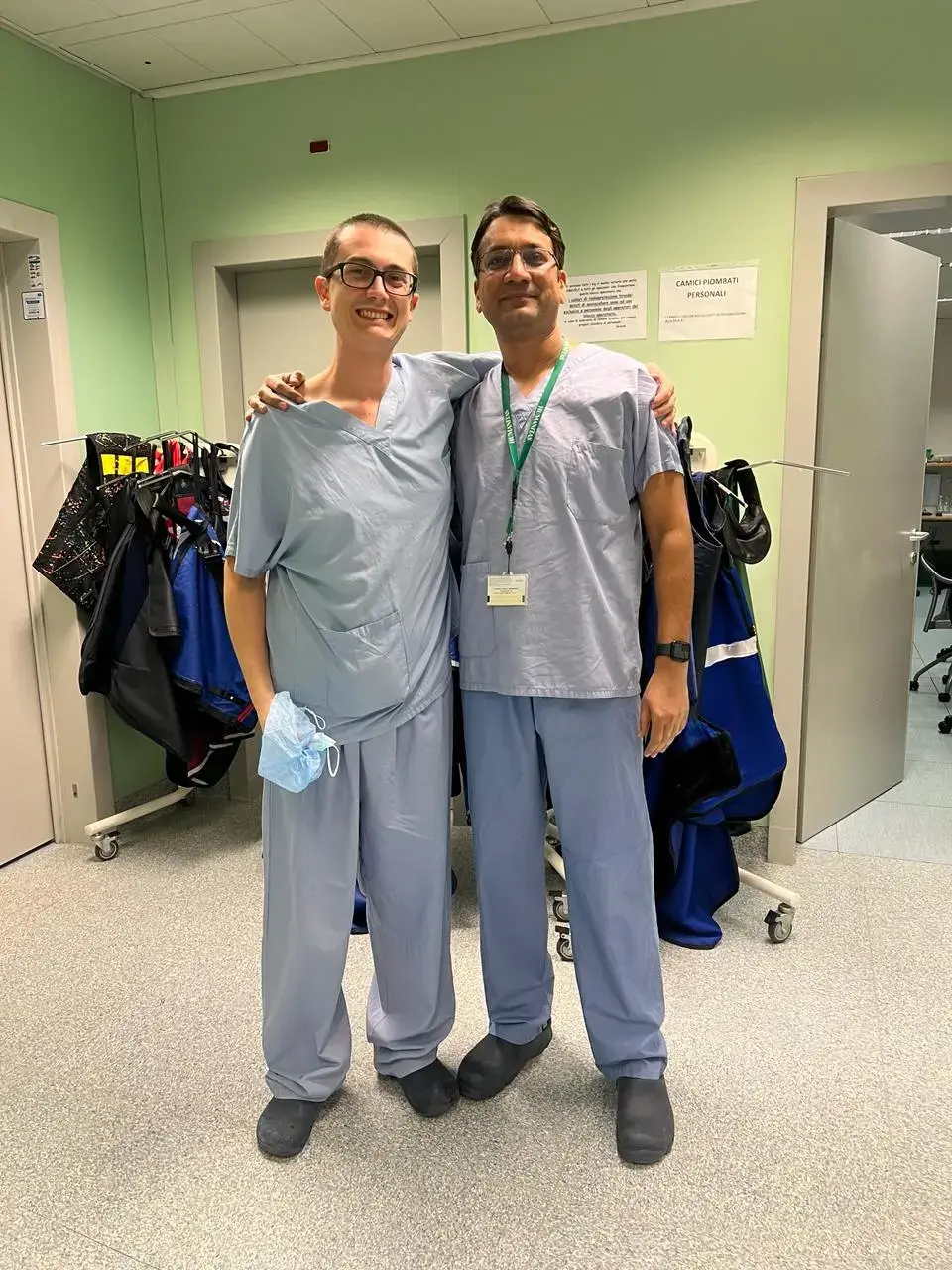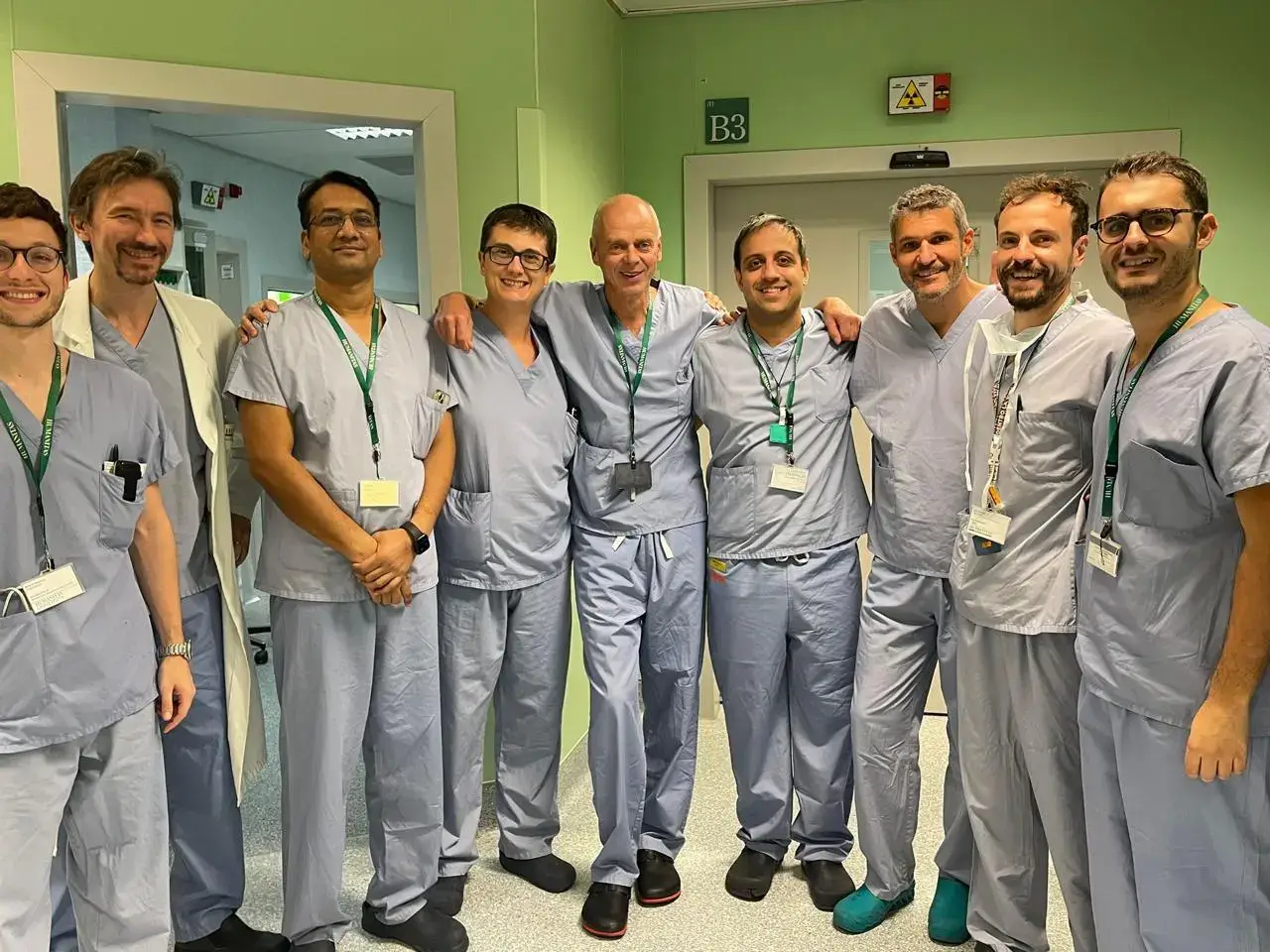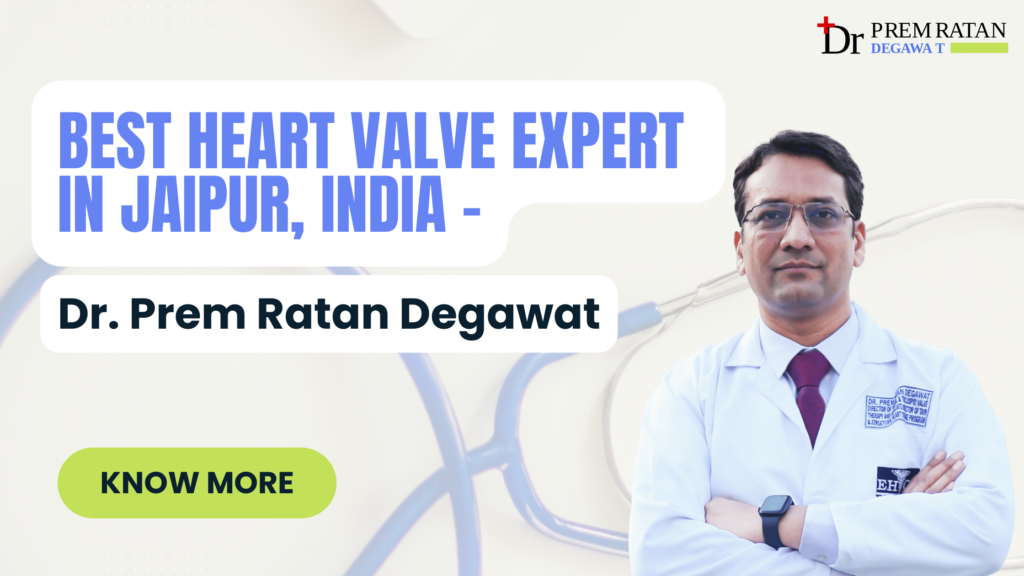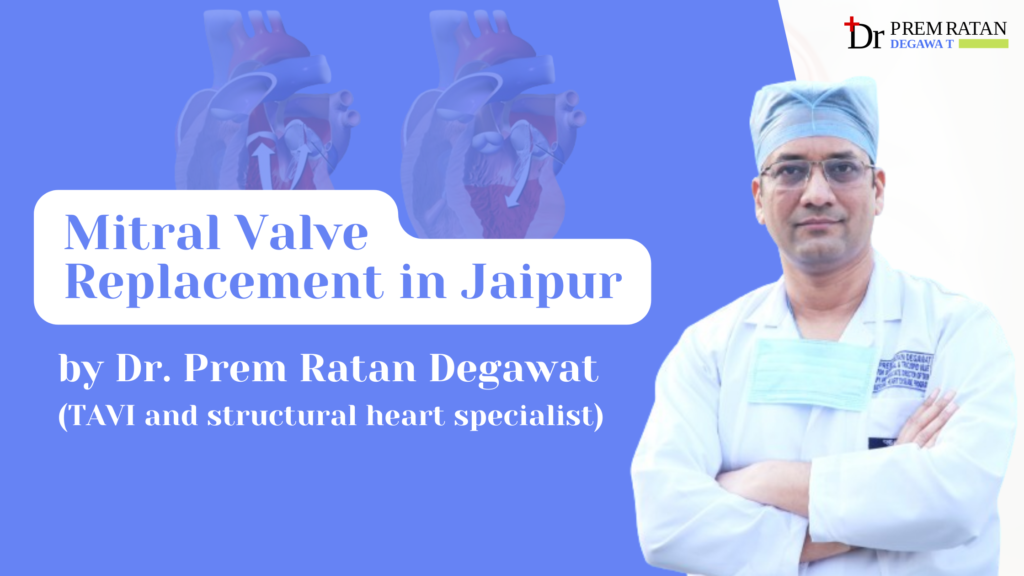In the world of heart care, a new and exciting procedure called Transcatheter Aortic Valve Replacement (TAVR) or Transcatheter Aortic Valve Implantation (TAVI) has become a game-changer. It brings fresh hope to people with a heart condition called aortic valve stenosis who might not be strong enough for traditional open-heart surgery. If you’re in Rajasthan, and looking for a top TAVI expert, Dr. Prem Ratan Degawat stands out as a leader in this field. Dr. Degawat is renowned for his expertise in TAVI procedures, making him the go-to TAVI expert in Rajasthan.
Who is Dr. Prem Ratan Degawat?
Background and Experience:
Dr. Degawat is a highly qualified doctor with a double focus: TAVI and Structural Heart Disease. He’s also a Director for Mitral & Tricuspid Valve treatments and a senior consultant in Interventional Cardiology. He has a long list of achievements – an MBBS and MD in Internal Medicine, a DM in Cardiology, and fellowships in Complex Interventional Cardiology and Structural Heart Disease & TAVR from a prestigious institute in Italy (IRCCS). He’s among the best cardiologists in Jaipur, India, trained in various heart procedures, including TAVI, mitral valve repair, and more.
Expertise in TAVI/ TAVR:
Dr. Prem Ratan Degawat, a leading TAVR Expert in Rajasthan, has performed over 600 of these procedures, including complex cases. His expertise is further solidified by extensive research on safe TAVR practices based on nearly 2000 European cases. Beyond TAVR, he is also an expert in other heart procedures like TMVR, TPVR, and more.
Understanding TAVI:
What is TAVI?
TAVI is a minimally invasive procedure that replaces a blocked aortic valve with a new one. This new valve is inserted through a thin tube (catheter) typically placed in the leg artery and reaches the heart. Once in place, the new valve opens up properly, allowing for better blood flow and easing symptoms of aortic valve stenosis.
Who Needs TAVI?
TAVI is usually recommended for people with severe aortic valve stenosis who are considered too high-risk for traditional open-heart surgery. It’s a good option for those with other health problems or whose heart anatomy makes traditional surgery difficult, making Dr. Degawat a sought-after Tavi expert in Rajasthan.
How is TAVI Performed?
During TAVI, the doctor guides the catheter through the arteries to the heart using imaging technology for precise placement of the new valve. Because it’s minimally invasive, TAVI leads to shorter recovery times and fewer risks compared to open-heart surgery.
Benefits of TAVI/ TAVR
-
- Less Invasive:
TAVR is a much gentler procedure compared to open-heart surgery, lowering the risk of complications and improving overall patient outcomes. It’s particularly helpful for older patients or those with other health issues.
- Less Invasive:
-
- Faster Recovery:
Compared to traditional surgery, TAVI usually means a shorter hospital stay and a quicker return to daily activities. This faster recovery translates to better quality of life and happier patients.
- Faster Recovery:
-
- Improved Quality of Life:
By effectively fixing aortic valve stenosis and restoring proper heart function, TAVR can significantly improve a patient’s quality of life. Symptoms like chest pain, shortness of breath, and fatigue can be greatly reduced.
- Improved Quality of Life:
Jaipur as a Medical Hub
Jaipur, the vibrant capital of Rajasthan, has become a prominent medical center, offering advanced healthcare services and state-of-the-art facilities. Patients from all over India and even abroad seek treatment in Jaipur for its renowned medical expertise.
Who is the Best TAVI/ TAVR expert in Rajasthan, India?
Dr. Prem Ratan Degawat is a leading TAVI/ TAVR expert in Rajasthan. With over 600 TAVR procedures performed, he’s a trusted choice for patients seeking this procedure across the state.
Why Choose Dr. Prem Ratan Degawat?
-
- Experience and Skill:
With his extensive experience in heart procedures and his specialization in TAVR, Dr. Degawat offers unmatched expertise in diagnosing and treating complex heart conditions. Patients benefit from his successful track record and his dedication to pushing the boundaries of cardiovascular care.
- Experience and Skill:
-
- Focus on Patients:
Dr. Degawat prioritizes his patients’ well-being and actively involves them in decision-making, ensuring they understand their options and have a say in their treatment plan. His caring approach and commitment to patient satisfaction make him a trusted healthcare provider. - Advanced Facilities:
Dr. Degawat’s practice is equipped with the latest diagnostic and treatment technologies, allowing for accurate diagnoses and the best possible treatment outcomes. From modern catheterization labs to dedicated cardiac rehab services - Patient Testimonials:
Watch inspiring video testimonials from real people who have successfully overcome heart health issues. They’ll share their experiences and how Dr. Degawat’s expertise and care helped them get back to living a full and active life.
Patient Testimonial- Mrs. Munni Kanwar | TMVR Treatment by Dr. Prem Ratan Degawat
Patient Testimonial – Dr. Prem Ratan Degawat | Patient From Kabul, Afghanistan
- Focus on Patients:
Make your heart health a priority. Schedule a consultation with Dr. Degawat today. Discover how his expertise and compassionate care can help you achieve a healthier, happier you.
FAQs
1. What is the recovery time after TAVR?
The recovery time after Transcatheter Aortic Valve Replacement (TAVR) varies from patient to patient but is generally shorter compared to traditional open-heart surgery. Many patients experience a rapid recovery and can resume normal activities within a few days to a week after the procedure. However, full recovery may take several weeks, during which patients are advised to follow their healthcare provider’s instructions regarding physical activity and medication.
2. Are there any risks associated with TAVR?
While TAVR is considered a minimally invasive procedure with lower risks compared to traditional open-heart surgery, there are still potential risks and complications. Some of these risks include bleeding, stroke, heart rhythm disturbances, valve leakage, blood vessel complications, and in rare cases, death. However, the overall risk of complications is typically lower with TAVR, especially for high-risk patients who may not be suitable candidates for surgery.
3. Is TAVR suitable for all patients with aortic valve stenosis?
TAVR is not suitable for all patients with aortic valve stenosis. It is primarily recommended for patients who are considered high-risk or inoperable candidates for traditional open-heart surgery due to factors such as advanced age, multiple comorbidities, or anatomical constraints. Eligibility for TAVR is determined through comprehensive evaluation by a multidisciplinary team of healthcare providers, including cardiologists and cardiac surgeons.
4. How long does a TAVR procedure typically take?
The duration of a Transcatheter Aortic Valve Replacement (TAVR) procedure can vary depending on factors such as the patient’s anatomy, the complexity of the case, and the experience of the medical team. On average, a TAVR procedure typically takes between one to three hours to complete. However, patients may need to spend additional time in the recovery area following the procedure for observation and monitoring.
5. What follow-up care is required after TAVR?
After undergoing Transcatheter Aortic Valve Replacement (TAVR), patients require regular follow-up care to monitor their recovery and ensure optimal outcomes. This may include scheduled visits with their cardiologist or cardiac surgeon for clinical assessments, imaging studies, and laboratory tests. Additionally, patients may need to take medications as prescribed, participate in cardiac rehabilitation programs, and adhere to lifestyle modifications such as diet and exercise recommendations. The specific follow-up care plan will be tailored to each patient’s individual needs and medical history.
6. Who is the top TAVI expert in Jaipur?
Dr. Prem Ratan Degawat is widely regarded as a leading Tavi expert in Jaipur, Rajasthan. With his extensive experience, specialized expertise, and commitment to patient-centered care, Dr. Degawat has earned recognition as a top authority in TAVR procedures.
7. Is TAVI a risky procedure?
Like any medical procedure, Transcatheter Aortic Valve Implantation (TAVI) carries certain risks, although it is generally considered to be safe and effective for eligible patients. Potential risks associated with TAVI may include bleeding, stroke, heart rhythm disturbances, valve leakage, or blood vessel complications. However, the overall risk of complications is typically lower with TAVI compared to traditional open-heart surgery, especially for high-risk patients.
8. Is the heart stopped during TAVI?
During TAVI, the heart is not stopped because it’s crucial for maintaining blood circulation and oxygenation to vital organs. Keeping the heart beating throughout the procedure helps ensure continuous delivery of oxygen-rich blood to the body, reducing the risk of complications associated with stopping the heart. This is the main advantage of this technique.
9. Is TAVI better than open-heart surgery?
TAVI offers a minimally invasive approach with faster recovery and less scarring, making it suitable for high-risk patients. However, open-heart surgery might be preferable for complex cases requiring a more durable valve replacement. Dr. Degawat will assess your individual needs to recommend the best option for you.
10. How much does a TAVI cost?
The cost of Transcatheter Aortic Valve Implantation (TAVI) can vary depending on factors such as the hospital, the specific TAVR device used, and any additional medical expenses. Generally, TAVI procedures may range in cost, and it is advisable to consult with your healthcare provider or the hospital for accurate pricing information.
